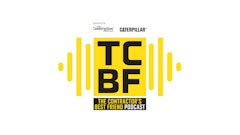Let me put it gently. For your estate plan to become effective you must be in heaven. But (thankfully) you ain't dead yet. A side note: If you die and don't have an estate plan, think of the havoc your family and business will face. The goal of this article is to give you many reasons to do not only your estate (death) plan, but an easy-to-do lifetime plan.
Let's assume your estate plan is perfect. Good! So, your death is planned. But you have the rest of your life to live. The latest life expectancy tables say you should make it to age 81 (male) or age 85 (female).
Stop for a moment. Write down the age you are shooting for and remember, the above ages are averages. Add a year or two for each of the following: Your mom/dad have good genes, you watch your weight and diet, exercise and, of course, don’t smoke. So, how many years do you have between today and your last breath? Let's play the life expectancy game: Your best "guesstimate" as to the number of years before you get hit by the final bus. Fill in this blank _______. Married, do the same how-many-years-to-live drill for your spouse _________.
Okay, we now have an estimated time frame for the number of years for your first plan: your lifetime plan. This article is about lifetime planning and how such a plan not only saves you a ton of tax dollars but also will significantly increase your wealth and make the rest of your life less stressful. Of course, your lifetime plan will dovetail with your estate plan.
What caused me to write this particular article? Joe, a reader from Texas, who is rich, has an almost perfect death plan, but is a poster boy for lifetime planning because he didn't realize that his extreme dissatisfaction with his estate plan was his lack of any kind of a lifetime plan.
You'll like Joe's story. Whether you are worth more or less than Joe, pay attention to his problems and how easily (and quickly) our plan solved them. Chances are you'll be able to use one or more of Joe's strategies to enrich your own family, at the expense of the IRS.
Joe is worth $44 million. Here are his significant assets (at current values):
Owns 51% of Success Co. — $19 million
Business real estate (leased to Success Co.) — $10 million
Residences (2) — $4 million
Rollover IRA — $2 million
Stock portfolio — $9 million
Total — $44 million
Joe also has a $10 million life insurance policy (original term of 15 years, which will end in 2 years). Joe's sister Sue owns 49% of Success Co. Joe has five children. Only one, Sam (38 years old), is in the business and someday will take over for Joe.
Joe (age 62) and his wife Mary (60) played the life expectancy game with me. Their guesstimate: Joe has 25 years to enjoy life (to age 87) and Mary 33 years (to age 93). Remember, no estate tax is due until the second death. A long time frame for a comprehensive lifetime plan.
Joe hates paying taxes. He has spent a small fortune over a span of five years with various professional advisors trying to create an estate plan that accomplishes the following key goals:
- Gets the business to Sam without Joe losing control and the nonbusiness kids having no interest in the business.
- Treats his four non-business kids fairly (to Joe, "fairly" means each child gets about the same dollar amount).
- Allows his wealth to grow so that ultimately there will be enough assets to (a) treat the non-business kids fairly and (b) leave at least $10 million to charity (his alma mater).
- Finds a tax-effective way to buy Sue's 49% of Success Co. (She wants to sell).
Following are the strategies we used to accomplish Joe's goals, based on the assets he owns. Notice that every one of the strategies were implemented as part of Joe's lifetime plan, while leaving his estate (death) plan alone.
- Success Co.: We created 100 shares of voting stock (51 for Joe and 49 for Sue) and 20,000 shares of non-voting stock (10,200 shares each for Joe and 9,800 for Sue). We then created two intentionally defective trusts (IDT) (one for Joe, the other for Sue), to buy their nonvoting stock: $19 million for Sam and $18 million (rounded) for Sue. Sam is the beneficiary of both IDTs and will own all of the nonvoting stock when the $37 million is paid using the cash flow of Success Co. The entire IDT transaction is tax free to Joe, Sue and Sam — no income tax, no capital gains tax and no estate tax. Joe bought Sue's voting stock for $100,000 and will continue to control Success Co. for life.
- Business real estate: We created a charitable lead trust (CLT) and transferred this real estate to the CLT, which will receive $1.2 million annual rent from Success Co. The CLT was set up to last for 16 years and pay 7% per year (or $700,000) to charity. The Joe Family Foundation will receive the $700,000, a portion of which will pay the premium on a second-to-die life insurance policy on Joe and Mary for $10 million (and will ultimately go to Joe's alma mater). The real estate is now out of Joe's estate for tax purposes. After 16 years, the balance in the CLT will go to the non-business kids, all tax-free.
- Residences: We transferred a 50% interest in each of the two residences to Joe's trust (from his existing estate plan). The other 50% went to Mary's trust. This strategy provides a minority discount, lowering the value of the residences to $2.8 million for estate tax purposes.
- Rollover IRA: We used a strategy called Retirement Plan Rescue to purchase $15 million of second-to-die life insurance, using the IRA funds to pay the premiums. The entire $15 million will go to the kids tax free. The $10 million term policy was allowed to lapse.
- Stock Portfolio: We transferred the portfolio to a family limited partnership, lowering its value for tax purposes to $6 million (because of discounts allowed by the tax law).
Finally, we amended the current estate plan trusts with the appropriate language to make sure the various assets, including the insurance, would treat the nonbusiness kids fairly.
After four months the plan was done. When Joe signed the documents, he declared, "I'm finally a happy camper." Not only did Joe's lifetime plan accomplish all of his goals, but he got a huge dollar bonus: The plan gets all $44 million of his wealth to his kids, all taxes paid in full.
What's the planning lesson to be learned from Joe's story? It's smart lifetime planning, plus your old traditional estate plan, that prevents loss of your wealth to the IRS. And YES, lifetime planning wins ever time, quickly and easily.
Irv Blackman, CPA and lawyer, is a retired founding partner of Blackman Kallick Bartelstein, LLP and Chairmand Emeritus of the New Century Bank. Want to consult? Need a second opinion? Visit Irv's website at www.taxsecretesofthewealthy.com.


























